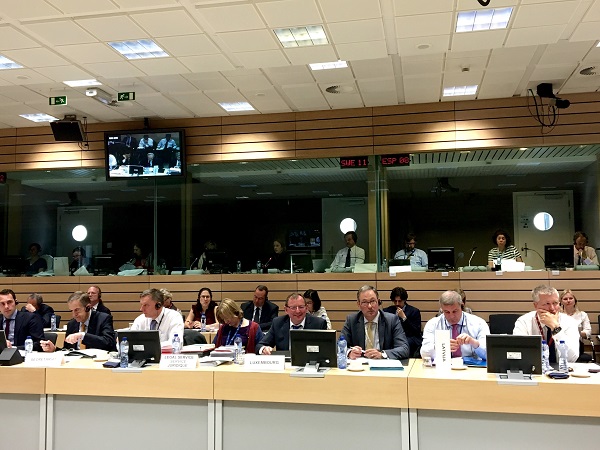
At the Agriculture and Fisheries Council held in Brussels on Wednesday 18 May 2016, the European Commission presented the third EUROBAROMETER survey on animal welfare, the main topic on the agenda.
Conducted among 27,000 European citizens in November of last year, the survey showed that Luxembourg is among 17 Member States which considers animal well-being to be equivalent to "respect for animals", whilst 10 Member States consider that animal welfare is linked to the treatment of farm animals.
Regarding aspects related to international trade, 93% of EU citizens and 86% of those in Luxembourg consider that imported products should meet the same standards of animal welfare to those applied in the EU, which are highly placed on the global scale. This is of particular importance in the current context of the Transatlantic Trade and Investment Partnership (TTIP) and MERCOSUR negotiations, the former of which has been demonstrated against in recent weeks.
In terms of the price of products, European consumers are willing to make an extra effort to buy products which respect the welfare of animals, even if that necessitates changing shops or paying more. The same report, however, showed that citizens do not feel that they have all the necessary information to make a choice based on considerations related to animal welfare, raising the question of establishing a clear label to guide consumers more easily.
Another related point was the platform launched by Germany, Denmark, the Netherlands and Sweden for exchanging experiences and good practices with a bid to strengthening standards and improving legislation on animal welfare. Luxembourg showed support for this idea, with Member States again highlighting the need to implement the best legislation.
The market situation was deemed to be far from settled. The European Commission is unwilling to provide funds, with national measures emerging as the main option. The proposed measures would target producers who are willing to voluntarily maintain or lower production and are currently being analysed. Luxembourg's own difficulty lies in the fact that more than three quarters of dairy companies have increased production since the end of the quotas.
The major topic is to be reviewed at the next Agriculture Council on 27 and 28 June 2016 in Luxembourg. The Commission is currently preparing an analysis to be presented regarding the budgetary margins available at the European level to consider a potential new package of measures.
Photo by MAVPC








